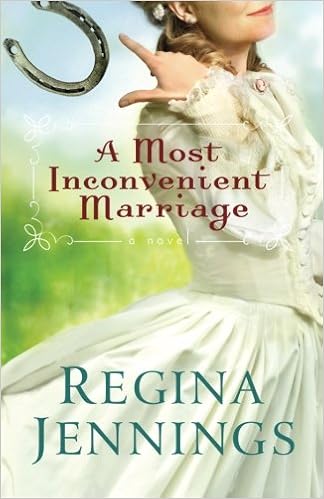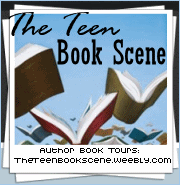
Good morning, everyone! Today I'd like to introduce you all to C.T. Douglas a very talented young artist and author of The Lore Trilogy: A Pirate's Charm. For those of you who love paranormal romance and pirate stories, you won't want to miss this!

When she flees Barbados in the late 1780s, the last thing Molly Bishop expects is to begin life anew with a criminal -- much less the infamous Captain Thomas Crowe. On the high seas, far from her old life and even farther from England and her Uncle Samuel's farm, Molly learns more than just the way of outcasts. Captain Crowe keeps secrets -- many secrets. His eyes are sometimes deep blue and sometimes yellow. Inhuman noises can be heard from his cabin on moonlit nights. Stranger still, Thomas possesses a ring crafted by Molly's father -- a man she thought to be long gone. Life on the fringes of civilization seems to offer something forbidden and exciting to Molly, and when Thomas's secrets are revealed, she is immersed in a world of fantasy and myth more real and much larger than she could have imagined. (book blurb)
1. How did you get the idea to add vampires and werewolves to a pirate story?
When I was a junior in high school, the excitement surrounding Pirates of the Caribbean just started to die off, and at the same time, Stephanie Meyer hadn't yet released the second installment in the Twilight series. I remember being in a meeting for a club that a friend and I had started, "Creative Writing and Comics", and someone who was talking about Twilight eventually had everyone on the subject of vampires. It was sometime soon after this that I thought, "Why has no one put pirates, werewolves, vampires, and everything else possible into one story?" I've always been a fan of mythology, especially Greek mythology, and I love studying the deeper meanings attached to folklore and legends. At the time I realized that the fan bases for pirates and vampires overlapped and I decided to start writing a story that just made sense to me. Once I began, I kept writing, and finished the series in high school, but didn't pick it back up and consider it seriously until I was already a year into college.
2. Who is your favorite character in A Pirate's Charm and why?
My answer may come as a surprise: the Leviathan. I can't tell you how many times I came back to that chapter. I could never make it quite good enough, and while I was revising A Pirate's Charm, I had several revelations about writing and purpose. I think what upset me about the Leviathan chapter, initially, was that every version of it felt cliche. It was in the early morning one night that, out of exhaustion and frustration, I tore the chapter apart and rewrote it in every way possible. I wanted to evoke a new sense of wonder in the face of this creature, and describing a "dark and stormy night" to set the stage was not going to cut it. The question to be answered here, I thought, is "what is fear made of?" I decided that fear was a reaction to the unnatural and unfamiliar, so I started by making the natural setting (ocean, sky, etc) grotesque and surreal. Then, I decided that the Leviathan should be a deep sea creature and hark on the fear of "alien" things. This fascination I developed for creating a mood and designing a character, or in this case, a creature, to inhabit it led to my love for the Leviathan.
3. What is the hardest thing about writing for you?
The hardest thing about writing is knowing when to set down the work and call it "finished". I was prepared for this by years of art classes in high school. Any kind of artistic work is defined more by its flaws than its successes. When a writer can "finish" a work, and move on, the work will later become a tool for reflection. I think writing is more about progressing than perfecting. I want to make my stories as perfect as possible, but if I waste time on that, I'll never finish them.
4. What do you do when you need inspiration?
Inspiration, for me, is never in short supply. I feel as though a lot of it comes to me each and every day, in little pieces. I never just have tons and tons of ideas, but I build up a few really worthwhile ones over a long period of time. Watching movies, listening to music, and being able to think in quiet or peaceful places certainly helps when I need a little extra creative fuel, though. I do a lot of questioning and thinking on my own, and rarely do I go looking for "examples" to draw from. I laugh when I think of how often I'm asked to name my favorite author, because I don't have one. I rarely read, and often it's because I'd rather be writing, and I'm always afraid of allowing myself to subconsciously mimic other artists' ideas.
5. When did you first know you wanted to be a writer?
I've always been a writer, but I guess it would be more correct to say I've always been a storyteller. I've been a visual artist for longer than I've been a serious writer, and I've also been a musician since early high school. I love stories, for one reason or another, and these various modes of expression allowed me to realize that I had the greatest room for expression in writing, since writing came easiest. I didn't think of myself as a writer until as recently as two years ago. I began college as an Architectural Design major, ditched it in less than a week, and switched to English. At that time, I took up Lore, dusted it off and said, "I'm going to do this from now on."
6. Do you let friends/family read your writing before its done?
I let several people look through my work as I write, which is a new behavior for me. Normally I'm the type of person who would sooner set a manuscript on fire than let someone look at it "naked" haha. Since the first book, I've steadily gathered friends and other connections whose personalities and perspectives make for an excellent gradient of feedback. Often, if I sit with someone who is familiar with the story, and explain a specific concept to them that I'm developing, the bouncing of ideas will produce a thought that wouldn't have occurred to me if I had kept myself locked up in my own little world and shut-out to other idea highways. Allowing for input during the creation process is great. When you pass your ideas through others, it's like looking at a picture you drew through different lenses, and this allows you to see parts of your picture that you may have neglected or not considered thoroughly.
7. Are there any writers you particularily look up to?
Again, I don't really look to other writers for guidance or look up to other artists to evaluate myself by. I consider all the arts to be alternate means of expression, and storytelling is really at the heart of every art form. Having said this, I do look to certain "storytellers" because I find a certain inspiring uniqueness in their work. A few would be directors Hayao Miyazaki and Shinichiro Watanabe; authors and writers Lewis Carroll, Stephen King, J.R.R. Tolkien, J.K. Rowling, Aldous Huxley and Mary Shelley; animator Don Hertzfeldt; composer Tchaikovsky, and many contemporary bands, mostly in the blues and rock genres and subgenres.
8. Any advice for young writers?
What I always emphasize to aspiring writers is this: "If you love it, that means it's what you're meant to do. If you do it, and don't stop, you'll never regret it."
My review of A Pirate's Charm
Official Lore Trilogy website
A Pirate's Charm on Goodreads
Thursday, September 23, 2010
Author Interview with C.T. Douglas
Posted by (Arya) Paige at 9:20:00 AM
Labels: A Pirate's Charm, author interview, C.T. Douglas
Subscribe to:
Post Comments (Atom)












0 comments:
Post a Comment